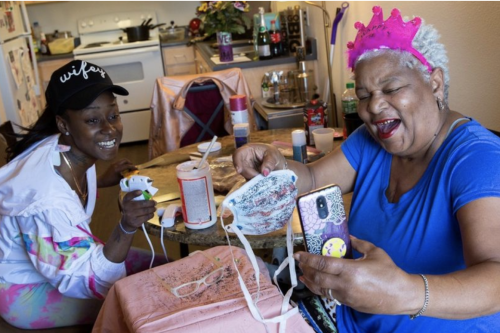Our Research

This study consists of a randomized controlled trial (RCT) of an intervention that was initially designed to address social isolation and loneliness among people experiencing homelessness (PEH) that was subsequently paired with an economic poverty reduction intervention
Much of the Center’s research focuses on housing interventions that use a housing first approach. This includes several large-scale studies that attempt to understand how housing interventions can serve as a social determination of health. Our research also includes a focus on interventions and is committed to better understanding how racism and inequality drives homelessness and how best to intervene.
Our studies focused on PSH include:
- A comparative effectiveness study of place-based versus scatter-site permanent supportive housing (PSH) on patient-centered and COVID-19 related outcomes. Funded by PCORI, in collaboration with UCLA.
- A study of the impact of transitioning from homelessness to PSH on health-related outcomes for adults. Funded by NIDA.
- A study that compares the health behaviors of young adults who accessed housing versus those who remained homeless. Funded by NIMH.
- A study to understand accelerated aging among older adults living in PSH. Funded by NIA.
- Studies that attempt to better understand the pathways in and out of homelessness and housing among unsheltered adults in general - funded by the Hilton Foundation, in collaboration with UCLA and Akido Labs - and the veteran population in particular - funded by the Epstein Family Foundation, in collaboration with the Rand Corporation.
Our studies focused on interventions include:
- A randomized control trial of a fall prevention program for older adults living in PSH. Funded by SC CTSI, in collaboration with Johns Hopkins University.
- Using Artificial Intelligence (AI) for HIV prevention among homeless youth through influence maximization using social network algorithms. In collaboration with the USC Center for AI in Society.
- The use of telemental health services in PSH. Funded by the Gehr Center.
- The general use of technology to improve the lives of PSH tenants. Funded by NSF, in collaboration with California State University, Fullerton.
- A randomized control trial of social support and basic income for people experiencing homelessness. Funded by Google.org, in collaboration with Miracle Messages.
- Reducing racial bias in homelessness services and housing intake. In collaboration with the USC Center for AI in Society.